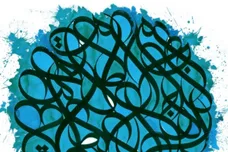At this stage, Drake’s ongoing story arc is not unlike the image of a snake eating its own tail. Seemingly unable or unwilling to forge the emotional connection he seems to covet, his cleverest attempts feel detached, even casually dishonest. A hopeless romantic as presented, but also an unreliable narrator; it’s difficult to believe that he’s either hopeless or romantic. Even the Certified Lover Boy album cover speaks to an unwillingness to commit, indulging instead in the desire to fulfill whatever hedonistic urge comes to pass. The liner notes make the whole thing even more of a head-scratcher: a combination of toxic masculinity and acceptance of truth, which is inevitably heartbreaking. Perhaps the heartbreaking truth plaguing the Certified Lover Boy arises from the revelation that he is, in fact, an agent of toxic masculinity. But given how much lyrical content he has yielded in the process, presenting himself as a victim is simply too golden a goose to cook.
Certified Lover Boy is technically Drake’s sixth studio album. His previous release, while lined with undeniable high points, lacked the sting of its namesake. His latest album’s title seems to suggest a softened touch -- though Drizzy has proven self-aware enough to indulge in a little winking and nudging from time to time. It’s in these sly moments of candid sincerity that the album’s heart shines through. Penultimate track “Fucking Fans,” a double-meaning title that invites interesting interpretation, might be the thematic crux of the entire album. “How am I supposed to get to know somebody?” he asks, perhaps rhetorically. “Ni**a left his 20s and I still wanna party / I can not be trusted on my own with nobody.”
Though some are already beginning to write the project off as forgettable, perhaps the bulk of Certified Lover Boy’s replay value stems from one simple fact: it’s best enjoyed as a character study. On “Fair Trade,” a spiritual successor to Travis Scott’s “Sicko Mode,” Drake continues to provide insight into his philosophical outlook, with particular regards to relationships. “Baby, if you want me, can't be turnin' up with everybody,” he warns. “Can't be fuckin' on just anybody / I got feelings for you, that's the thing about it / You know that it's somethin' when I sing about it.” And sing about it he does; the man has more muses than most, with each one inspiring enough to elicit a few lines at the very least.
As Drizzy is self-aware of his flaws, so too is he of his strengths. He certainly understands the scope of his reach, the power he wields in immortalizing whomever he so pleases in his music. It’s not uncommon that he’ll write as if speaking directly to an unidentified party, offering up his perspective on one ambiguous emotional connection or another. A master of subliminal messaging, part of the deeper listening experience derives from attempting to piece together the puzzle. It’s become somewhat of a meme to suggest that Drake writes his bars with Instagram captions in mind, but damned if it doesn’t feel like he’s deliberately playing into the stereotype here. How else can you explain groan-inducing gems like “Angel eyes, but you've been giving me hell all night?”
While Certified Lover Boy offers much in that department, the project’s highest moments tend to arrive when Drake buckles down and raps. It’s no secret that “7AM On Bridle Path” is an album highlight, a welcome reminder of Drizzy’s prowess as an emcee. There’s a therapeutic quality to the song that feels genuinely sincere, an airing of grievances aimed at a longtime thorn in his side. It’s here that we see Drake at his most incisive, skillfully putting words together to form calculated punchlines. Unfortunately, he doesn’t seem to linger in this particular zone; to this day, one has to wonder what an album made up entirely of “time songs” would do for his reputation in rap circles. “No Friends In The Industry” is another gem, and while it’s not quite as lyrically impressive as the aforementioned, the venom in his tone commands immediate attention.
There are plenty of rewards for longtime Drake fans. “Race My Mind” evokes nostalgic shades of early work like Thank Me Later and Take Care, while the posse cut with Lil Wayne and Rick Ross “You Only Live Twice” feels like a victory lap fueled by healthy competition -- though by now it should be known that one should compete against Lil Wayne at one’s own risk. And of course, Drake’s “Champagne Poetry'' continues the tradition of contemplative tone-setting intros, complete with a few caption-ready bars for your listening pleasure. “Under a picture lives some of the greatest quotes from me,” he spits, over a sample of Masego’s sample of The Singers Unlimited's cover of the Beatles' "Michelle." “Under me I see all the people that claim they over me.”
The reality is, one of Drake’s biggest strengths lies in controlling narratives. Perhaps his most noteworthy moment of publicized weakness arrived when control was wrested from him, and from that point onward a line in the sand was drawn. It’s a line that has lingered ever since, and though Drake has done his best to regroup by positioning himself as a shining example of co-parenthood goals, some will be reluctant to purchase what he's selling. But even the illusion of control can be a comforting presence to those who have already made up their mind. Perhaps it's fair to say that one's enjoyment for Certified Lover Boy will derive almost exclusively from one's appreciation for Drake's story as presented so far; one's willingness to suspend disbelief in favor of immersion. Those looking for a reinvention of the Drake formula will likely be disappointed -- though anyone paying attention will have already known that it was probably never going to happen in the first place.









